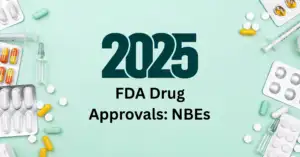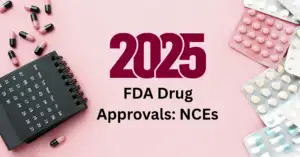Why Comparator Sourcing Matters
In today’s clinical research environment, comparator sourcing has evolved into a strategic function. Selecting the right comparator impacts not only regulatory approvals but also patient safety and trial timelines. As clinical trials become increasingly global, choosing and procuring appropriate comparators—whether for oncology, rare diseases, or chronic conditions—requires deep planning and expertise.
This guide offers a clear, real-world overview of comparator sourcing for clinical trials, highlighting best practices, key challenges, and vendor options for research sponsors.
What is Comparator Sourcing?
Comparator sourcing refers to the process of identifying and selecting the most appropriate comparators for a given study or analysis. A comparator is a reference group that is used as a basis of comparison in a clinical trial, observational study, or other type of research.
The selection of a comparator is an important consideration in study design, as it can affect the validity and generalizability of the results. Some factors to consider when selecting a comparator include:
Clinical relevance: The comparator should be clinically relevant to the study population and the research question being addressed.
Similarity: The comparator should be like the intervention group in terms of relevant characteristics, such as age, sex, disease severity, and comorbidities.
Availability: The comparator should be readily available and feasible to use in the study.
Ethical considerations: The use of a placebo or no treatment comparator may be unethical in certain situations, such as when effective treatments are available.
Regulatory requirements: Regulatory agencies may have specific requirements for the selection of comparators in clinical trials.
The process of sourcing may involve a systematic review of literature, expert consultations, and alignment with global guidelines. Effective clinical trial comparator sourcing helps ensure trial reliability, patient safety, and successful endpoint measurement.
Why Comparator Selection is Crucial to Study Success
Choosing the right comparator is vital in clinical trial design. A misaligned comparator can skew study outcomes, delay regulatory submissions, and raise ethical concerns. That’s why strategic comparator sourcing is essential—it ensures that the comparator aligns with the trial’s objective, therapeutic area, and target region.
Moreover, in global comparator sourcing, sponsors must comply with local sourcing laws, import regulations, and product registration requirements. A thoughtful sourcing strategy improves study efficiency while minimizing compliance risks.
Types of Vendors Involved in Comparator Sourcing
Several types of comparator sourcing companies support trial sponsors, each offering unique strengths. These include:
Commercial sourcing vendors
These firms specialize in comparator sourcing for clinical trials, offering access to approved drugs and strong distribution networks.
Specialty pharmacies
Known for sourcing rare and niche comparators, especially in precision medicine or rare disease trials.
Contract Research Organizations (CROs)
Many CROs integrate clinical trial comparator sourcing into their broader trial services, enabling bundled solutions.
Clinical trial supply chain management companies
Offer end-to-end supply, from sourcing to last-mile delivery, with regulatory and temperature control capabilities.
In-house sourcing teams
Larger pharma or biotech companies often rely on internal expertise for sourcing and managing comparators globally.
Comparator Sourcing: Regulatory Expectations Across the Globe
Regulatory bodies like the FDA, EMA, and PMDA have specific guidelines around comparator use and procurement. For example:
FDA requires comprehensive traceability documentation per 21 CFR 312.23, including certificates of analysis, batch records, and chain of custody documentation when using non-U.S.-approved comparators. These requirements ensure product authenticity and regulatory compliance throughout the clinical trial.
EMA mandates that comparators be approved in the trial region and sourced through legitimate channels.
In strategic global comparator sourcing, you may need to demonstrate ethical equivalency, bioequivalence, or consistent formulation.
Being unaware of regional requirements can result in costly delays, rejected submissions, or patient safety issues.
Challenges and Risks in Comparator Sourcing
Comparator sourcing can be a complex and challenging process, and there are several risks associated with it. These risks include:
- Counterfeit or substandard products
- Supply chain disruptions
- Regulatory non-compliance
- Unexpected cost overruns
- Ethical concerns in placebo-based studies
Whether you’re working with comparator sourcing companies or building internal teams, these risks require proactive planning and quality controls.
Best Practices to Mitigate Comparator Sourcing Risks
To reduce risk and ensure consistent supply, consider the following steps:
- Partner with global comparator sourcing vendors with proven track records.
- Align sourcing strategy with regulatory guidance.
- Build contingency plans for potential delays or product unavailability.
- Verify product authenticity through batch records and audit trails.
- Prioritize ethical review boards’ input when placebo use is in question.
Real-World Scenario: When Comparator Delays Cost More Than Time
A biotech sponsor running a Phase III immunology trial underestimated the time needed for strategic comparator sourcing in emerging markets. Local restrictions and a lack of early planning led to an 8-week delay in trial enrollment.
This postponed their regulatory filing by over three months and increased project costs by 15%. Had they engaged a comparator sourcing company with global access earlier, the setback could have been avoided.
Conclusion: Make Comparator Sourcing a Strategic Advantage
Comparator drug sourcing is not just a support function—it’s a strategic pillar of trial success. Whether you’re navigating comparator sourcing for clinical trials in a single region or executing a global comparator sourcing plan, partnering with the right experts makes all the difference.
When you treat clinical trial comparator sourcing as a priority, you safeguard data integrity, protect patients, and position your study for regulatory and commercial success.
Need Help with Comparator Sourcing?
Spring Bio Solution works with global sponsors to deliver reliable, compliant, and timely comparator sourcing solutions. Contact us to discuss your trial’s sourcing needs today.





